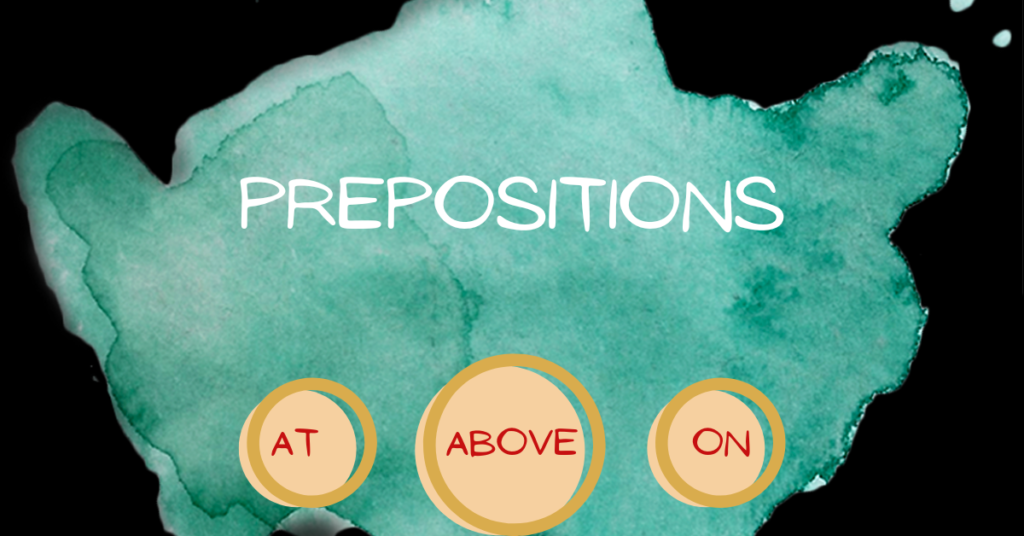
Prepositions are words that show the relationship between a noun or pronoun and other words in a sentence. They typically indicate location, direction, time, manner, or the relationship between two things. Prepositions are usually followed by a noun or pronoun called the object of the preposition.
Example: “The book is on the table.”
Explanation: In this sentence, “on” is a preposition. It shows the relationship between the noun “book” and the noun “table.” The preposition “on” indicates that the book is in a position above the table.
Common prepositions include:
- Location Prepositions:
Examples:
- In (e.g., “The book is in the bag.”)
- Come up with your own sentence.
- On (e.g., “The cup is on the table.”)
- Come up with your own sentence.
- At (e.g., “She is waiting at the bus stop.”)
- Come up with your own sentence.
- Under (e.g., “The cat is hiding under the bed.”)
- Come up with your own sentence.
- Direction Prepositions:
- To (e.g., “He went to the store.”)
- Come up with your own sentence.
- From (e.g., “The letter is from my friend.”)
- Come up with your own sentence.
- Into (e.g., “She jumped into the pool.”)
- Come up with your own sentence.
- Out of (e.g., “The bird flew out of the cage.”)
- Come up with your own sentence.
- Time Prepositions:
- At (e.g., “We will meet at 6 p.m.”)
- Come up with your own sentence.
- On (e.g., “Her birthday is on Monday.”)
- Come up with your own sentence.
- In (e.g., “We went camping in July.”)
- Come up with your own sentence.
- During (e.g., “He fell asleep during the movie.”)
- Come up with your own sentence.
- Manner Prepositions:
- With (e.g., “She painted with a brush.”)
- Come up with your own sentence.
- By (e.g., “The book was written by the author.”)
- Come up with your own sentence.
- Through (e.g., “They walked through the forest.”)
- Come up with your own sentence.
- Like (e.g., “She sings like an angel.”)
- Come up with your own sentence.
- Relationship Prepositions:
- Of (e.g., “The color of the car is red.”)
- Come up with your own sentence.
- For (e.g., “I bought a gift for my friend.”)
- Come up with your own sentence.
- About (e.g., “They had a discussion about politics.”)
- Come up with your own sentence.
- With (e.g., “She is angry with her sister.”)
- Come up with your own sentence.
Prepositions help us establish relationships between different elements in a sentence, indicating location, direction, time, manner, or the relationship between two things. They play a crucial role in providing clarity and specificity to our language.